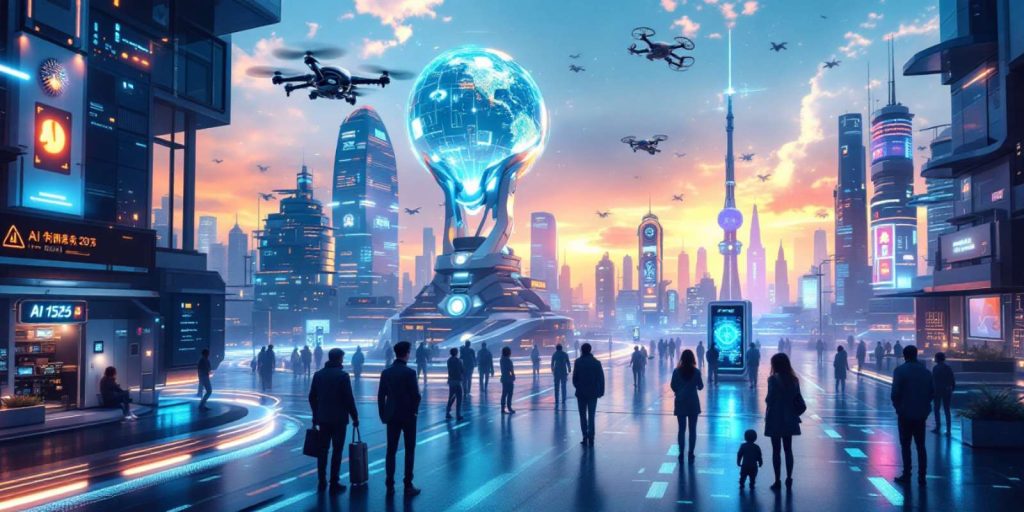The concept of smart cities and urban technology is rapidly evolving, driven by advancements in digital infrastructure, data analytics, and sustainable practices. As urban populations continue to grow, the integration of technology into city planning and management becomes essential. This article delves into the future of smart cities, exploring how innovations such as IoT, AI, and big data are transforming urban environments into more efficient, livable, and sustainable spaces.
In the following sections, we will examine the key components that define smart cities, including intelligent transportation systems, energy-efficient buildings, and enhanced public services. You will learn about the role of technology in addressing urban challenges such as traffic congestion, pollution, and resource management. Additionally, we will discuss the importance of community engagement and collaboration in creating inclusive urban spaces that cater to the needs of all residents.
As we navigate through the complexities of urbanization, this article will also highlight the potential challenges and ethical considerations that come with implementing smart technologies. From data privacy concerns to the digital divide, understanding these issues is crucial for fostering a balanced approach to urban development. Join us on this journey to uncover the transformative power of smart cities and urban tech, and discover how these innovations are shaping the future of urban living.
Sustainable Urban Development
The concept of sustainable urban development is at the forefront of smart city initiatives. As urban populations continue to grow, cities face the challenge of providing essential services while minimizing environmental impact. Sustainable practices, such as green building designs, renewable energy sources, and efficient waste management systems, are crucial for creating livable urban spaces. By integrating technology, cities can monitor resource usage in real-time, allowing for better management of energy and water resources.
Moreover, sustainable urban development promotes the use of public transportation and non-motorized transport options, reducing traffic congestion and air pollution. Smart cities leverage data analytics to optimize public transit routes and schedules, making them more efficient and user-friendly. This not only enhances the quality of life for residents but also contributes to the overall health of the planet.
Smart Infrastructure and IoT Integration
Smart infrastructure is a key component of the future of urban tech. The integration of the Internet of Things (IoT) into city infrastructure allows for enhanced connectivity and communication between devices. Smart sensors can monitor everything from traffic flow to air quality, providing valuable data that can be used to improve urban living conditions. For instance, smart traffic lights can adjust their timing based on real-time traffic conditions, reducing congestion and improving safety.
Additionally, IoT-enabled infrastructure can facilitate predictive maintenance, ensuring that city services such as water supply and waste management operate smoothly. By utilizing data analytics, cities can anticipate issues before they become significant problems, leading to cost savings and improved service delivery. This proactive approach to urban management is essential for the sustainable growth of smart cities.
Citizen Engagement and Smart Governance
Citizen engagement is a vital aspect of smart city development. As cities become more technologically advanced, it is essential to involve residents in the decision-making process. Smart governance platforms enable citizens to provide feedback on urban policies and services, fostering a sense of community ownership. Through mobile applications and online portals, residents can report issues, participate in surveys, and access city services more efficiently.
Moreover, transparent communication between city officials and residents builds trust and encourages civic participation. By leveraging technology, cities can create a more inclusive environment where diverse voices are heard. This engagement not only enhances the quality of urban life but also leads to more effective governance and policy-making.
Data Privacy and Security Challenges
As smart cities rely heavily on data collection and analysis, concerns regarding data privacy and security have emerged. The vast amount of information generated by IoT devices raises questions about how this data is stored, used, and protected. Ensuring the privacy of citizens while utilizing data for urban planning is a delicate balance that city officials must navigate.
To address these challenges, cities must implement robust cybersecurity measures and establish clear data governance policies. Educating residents about data privacy and their rights is also crucial. By fostering a culture of transparency and accountability, smart cities can build trust with their citizens while harnessing the power of data to improve urban living.
The Role of Artificial Intelligence in Urban Management
Artificial intelligence (AI) is transforming the way cities operate and manage resources. From predictive analytics to automated decision-making, AI technologies can enhance urban management in various ways. For instance, AI can analyze traffic patterns to optimize public transportation systems, reducing wait times and improving service efficiency.
Furthermore, AI-driven solutions can assist in emergency response by predicting potential hazards and deploying resources accordingly. By integrating AI into urban planning, cities can create more resilient infrastructures that adapt to changing conditions. As AI continues to evolve, its role in shaping the future of smart cities will become increasingly significant, offering innovative solutions to complex urban challenges.
Smart cities leverage technology to enhance the quality of life for their residents, improve urban services, and promote sustainability. This table summarizes key aspects of smart cities and urban technology.
| Aspect | Description |
|---|---|
| Definition | Smart cities use digital technology to enhance performance, efficiency, and quality of urban services. |
| Key Technologies | IoT (Internet of Things), AI (Artificial Intelligence), Big Data, Cloud Computing, and 5G connectivity. |
| Benefits | Improved public safety, reduced energy consumption, enhanced transportation systems, and better waste management. |
| Challenges | Data privacy concerns, high implementation costs, and the need for robust cybersecurity measures. |
| Examples | Barcelona’s smart lighting, Singapore’s smart traffic management, and Amsterdam’s smart waste bins. |
| Sustainability | Smart cities aim to reduce carbon footprints through efficient resource management and renewable energy sources. |
| Community Engagement | Involving citizens in decision-making processes through digital platforms and feedback systems. |
| Future Trends | Increased integration of AI, expansion of smart mobility solutions, and greater focus on resilience against climate change. |


